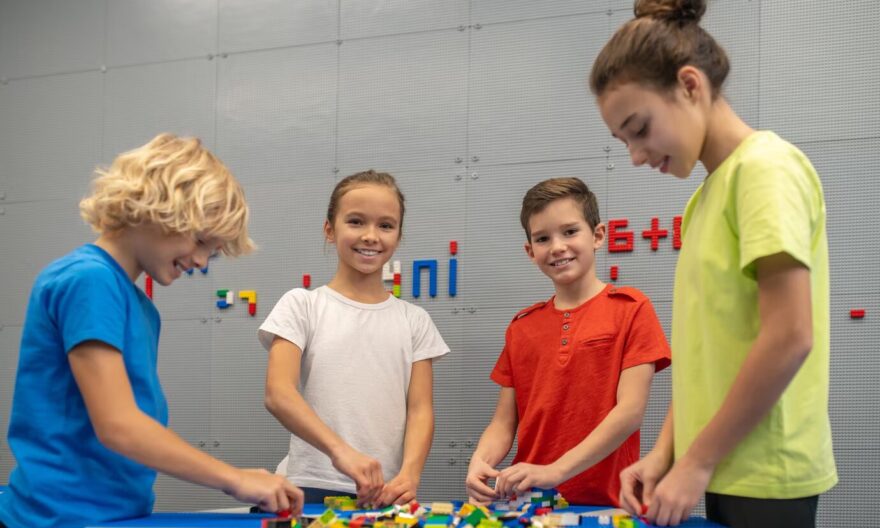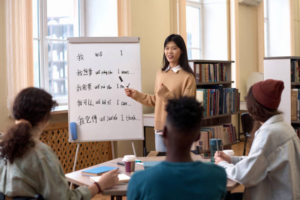
One of the primary concerns in rearing and teaching children is brain training or cognitive training. The top 4 brain training for kids suggestions are included below for parents searching for practical advice on how to support their children’s holistic development.
Many parents might not completely get the idea of brain training for kids or its purpose. So what is it exactly? It is a process of mental training that needs knowledge, learning, and perception of objects to strengthen brain connections for simple understanding. Concentration enhancement, memory consolidation, and increased intellectual flexibility are the three most evident benefits of brain training.
Why is it vital to train children’s brains? The need for mental health in every child is a straightforward response to this. Children can completely develop if parents look after their physical and emotional needs. Children who receive brain training from a young age will also be more likely to have the correct perspective and awareness of their surroundings.
Because of this, do not disregard your children’s need for cognitive practice. Let’s remember the next 4 pieces of parenting advice to aid your kids’ mental health.
Parenting Tips: Unlocking the Power of Brain Training for Kids
Encourage personalized and active learning:
This is a crucial piece of advice for your cognitive training. Rather than attempting to jam information into your children, encourage their curiosity!
By bringing kids on field excursions to a park, zoo, museum, or library, you may enhance their learning. Always prefer direct observation over theory. You may also start conversations with your kids about any subject to get them thinking, asking questions, and expressing their thoughts.
Allow them to pursue new interests like playing an instrument if they so want. The goal of the brain training method has been accomplished as long as your children are happy, motivated, and willing to study.
Additionally, let your kids study in their own time and manner. Some kids could link ideas using mind maps to have a greater understanding. Some people use pictures or flashcards to help them recall and visualize information.
A select minority choose to use context-sensitive examples to help people remember knowledge for longer. Your children will learn more effectively and more actively thanks to the tailored teaching approach of the baby classes.
Brain-training games integration:
We are all aware that youngsters can experience discouragement as a result of having too much knowledge. Then, is when you should engage in some enjoyable activities.
Don’t assume that giving your kids video games will ruin them. Playing in a measured and controlled manner, on the other hand, will benefit them. Children must pay close attention when playing games and rhythmically coordinate their hands, feet, ears, and eyes for reflexes.
Given that the brain must function at its highest level, this undoubtedly increases the effectiveness of cognitive training for children.
Incorporate some entertaining quizzes into the educational process for your youngster. Why not create your own game for your children if you’re worried that they’re spending too much time online or playing video games? It may take the shape of interactive games.
Create Knowledge in Rhymes, Pictures, or Small Pieces:
Try something that will be simpler for your children to “swallow” rather than forcing information into their minds.
You may divide the knowledge into manageable pieces and organize it into several categories and themes to make it simpler to take in. Additionally, it fosters children’s intellectual functioning and logical reasoning.
Additionally, another inventive technique to make the boring information more interesting is to use rhymes or pictures. Things with noises and visuals tend to catch our brain’s attention more readily.
This is the rationale for the widespread use of music, movies, and real-world pictures in math to aid with memorizing. The children must employ as many of their senses and associations as possible when using this brain training technique.
Being a guide, a friend, and a companion:
Last but not least, but most crucially, attempt to be a friend, a companion, and a leader. The parents’ contribution is crucial in assisting children with a completely formed brain training process.
Parents stick by their children from a young age, seeing them develop into adults who can support themselves. The way parents raise their children has a big impact on the child’s development. As a result, you participate in cognitive training as well.
And here’s some advice for you: communicate, sympathize, and offer assistance whenever you can. That does not imply that you will be kind to the kids. Be firm when they misbehave, encouraging when they falter, and joyful when they achieve.
However, you can still have friends. Let’s listen to their tales and experiences while also sharing our thoughts, feelings, and experiences with them. Your children will be able to develop their emotional intelligence in this way as well. You may be a dependable friend who experiences all the highs and lows of life with them and is always there for them.




